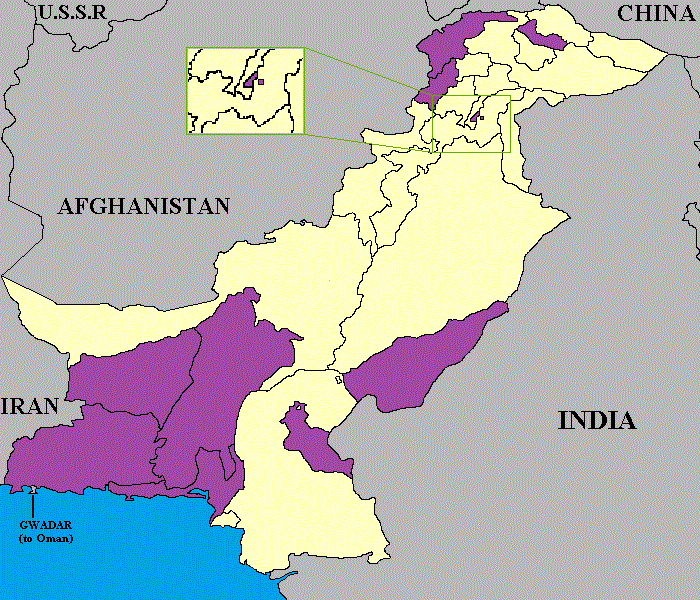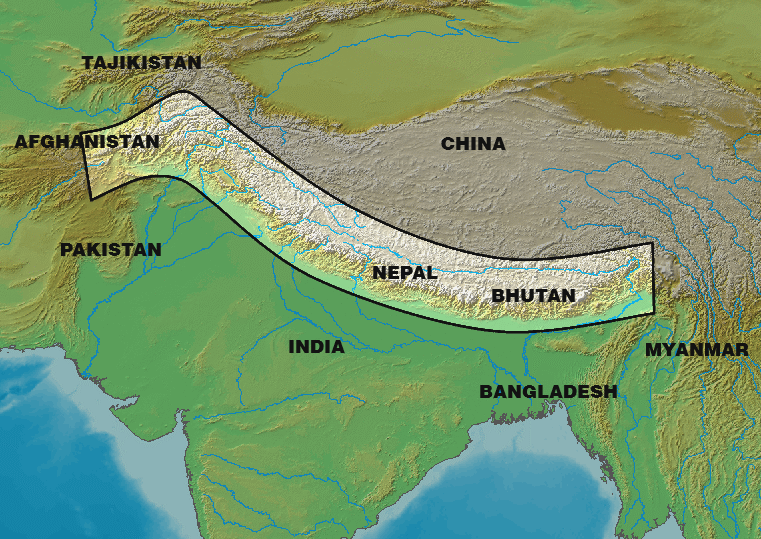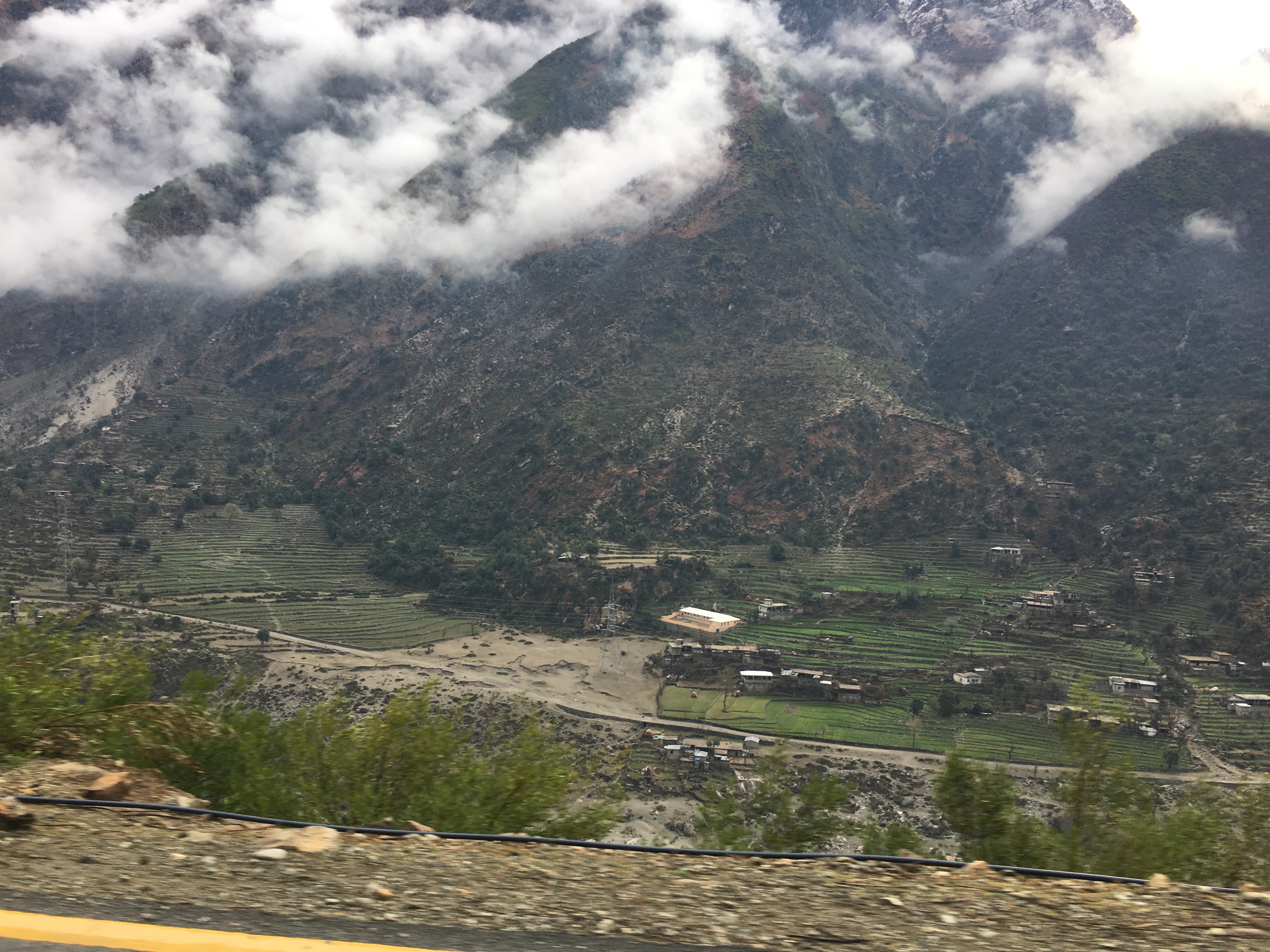|
Skardu Valley
The Skardu Valley () is located in Gilgit-Baltistan region of Pakistan. The valley is about 10 km wide and 40 km long. It is at the confluence of the Shigar River and Indus River. Surrounded by the giagantic Karakoram and Himalayas ranges and with its nearby lakes, it is an important tourist destination in Pakistan. Skardu is the main town of Baltistan along the wide bank of the river Indus. Skardu is the largest district of the Northern Areas. Baltistan is home to some of the highest peaks in the world, the Karakoram Range, Skardu is very popular with Mountaineering Expeditions. It is equally popular with high altitude trekkers, who treks to Baltoro Glacier, K2 Base Camp and Concordia. Skardu by road, lies approximately 5 hours away from Gilgit and 10 hours drive from Besham. See also *Skardu District *Skardu Skardu (, Tibetan script: སྐར་མདོ, ) is a city located in Pakistan-administered Gilgit-Baltistan in the disputed Kashmir region. The appli ... [...More Info...] [...Related Items...] OR: [Wikipedia] [Google] [Baidu] |
Gilgit Baltistan
Gilgit (; Shina: ; ) is a city in Pakistani-administered Gilgit–Baltistan in the disputed Kashmir region.The application of the term "administered" to the various regions of Kashmir and a mention of the Kashmir dispute is supported by the tertiary sources (a) through (d), reflecting due weight in the coverage. Although "controlled" and "held" are also applied neutrally to the names of the disputants or to the regions administered by them, as evidenced in sources (f) through (h) below, "held" is also considered politicized usage, as is the term "occupied," (see (i) below). (a) (subscription required) Quote: "Kashmir, region of the northwestern Indian subcontinent ... has been the subject of dispute between India and Pakistan since the partition of the Indian subcontinent in 1947. The northern and western portions are administered by Pakistan and comprise three areas: Azad Kashmir, Gilgit, and Baltistan, the last two being part of a territory called the Northern Areas. A ... [...More Info...] [...Related Items...] OR: [Wikipedia] [Google] [Baidu] |
Provinces Of Pakistan
The administrative units of Pakistan comprise four provinces, one federal territory, and two territorial dispute, disputed territories: the provinces of Punjab, Pakistan, Punjab, Sindh, Khyber Pakhtunkhwa, and Balochistan, Pakistan, Balochistan; the Islamabad Capital Territory; and the administrative territories of Azad Kashmir, Azad Jammu and Kashmir and Gilgit-Baltistan, Gilgit–Baltistan. As part of the Kashmir conflict with neighbouring India, Pakistan has also claimed sovereignty over the Indian-controlled territories of Jammu and Kashmir (union territory), Jammu and Kashmir and Ladakh since the Indo-Pakistani War of 1947–1948, First Kashmir War of 1947–1948. It also has a territorial dispute with India over Junagadh State, Junagadh, but has never exercised administrative authority over either regions. All of Pakistan's provinces and territories are subdivided into divisions of Pakistan, divisions, which are further subdivided into districts of Pakistan, districts, ... [...More Info...] [...Related Items...] OR: [Wikipedia] [Google] [Baidu] |
Pakistan Standard Time
Pakistan Standard Time (, abbreviated as PKT) is UTC+05:00 hours ahead of Coordinated Universal Time. The time zone is in use during standard time in Asia. History Present day Pakistan had been following UTC+05:30 since 1907 (during the British Raj) and continued using it after independence in 1947. On 15 September 1951, following the findings of mathematician Mahmood Anwar, two time zones were introduced. '' Karachi Time (KART)'' was introduced in West Pakistan by subtracting 30 minutes from UTC+05:30 to UTC+05:00, while '' Dacca Time'' (DACT) was introduced in East Pakistan by subtracting 30 minutes off UTC+06:30 to UTC+06:00. The changes were made effective on 30 September 1951. After the independence of Bangladesh in 1971, Karachi Time was renamed to Pakistan Standard Time. Daylight saving time Daylight saving time Daylight saving time (DST), also referred to as daylight savings time, daylight time (Daylight saving time in the United States, United States an ... [...More Info...] [...Related Items...] OR: [Wikipedia] [Google] [Baidu] |
Gilgit-Baltistan
Gilgit-Baltistan (; ), formerly known as the Northern Areas, is a region administered by Pakistan as an administrative units of Pakistan, administrative territory and consists of the northern portion of the larger Kashmir region, which has been the subject of a Kashmir#Kashmir dispute, dispute between India and Pakistan since 1947 and between India and China since 1959.The application of the term "administered" to the various regions of Kashmir and a mention of the Kashmir dispute is supported by the WP:TERTIARY, tertiary sources (a) through (e), reflecting WP:DUE, due weight in the coverage. Although "controlled" and "held" are also applied neutrally to the names of the disputants or to the regions administered by them, as evidenced in sources (h) through (i) below, "held" is also considered politicised usage, as is the term "occupied," (see (j) below). (a) (subscription required) Quote: "Kashmir, region of the northwestern Indian subcontinent ... has been the subject of di ... [...More Info...] [...Related Items...] OR: [Wikipedia] [Google] [Baidu] |
Pakistan
Pakistan, officially the Islamic Republic of Pakistan, is a country in South Asia. It is the List of countries and dependencies by population, fifth-most populous country, with a population of over 241.5 million, having the Islam by country#Countries, second-largest Muslim population as of 2023. Islamabad is the nation's capital, while Karachi is List of cities in Pakistan by population, its largest city and financial centre. Pakistan is the List of countries and dependencies by area, 33rd-largest country by area. Bounded by the Arabian Sea on the south, the Gulf of Oman on the southwest, and the Sir Creek on the southeast, it shares land borders with India to the east; Afghanistan to the west; Iran to the southwest; and China to the northeast. It shares a maritime border with Oman in the Gulf of Oman, and is separated from Tajikistan in the northwest by Afghanistan's narrow Wakhan Corridor. Pakistan is the site of History of Pakistan, several ancient cultures, including the ... [...More Info...] [...Related Items...] OR: [Wikipedia] [Google] [Baidu] |
Shigar River
Shigar River () is located in the mountainous Baltistan region of northern Pakistan. The Shigar is formed from the melted water of the Baltoro Glacier and Biafo Glacier. It flows through the Shigar Valley. The river is a tributary to the Indus River and meets the Indus in Skardu Valley The Skardu Valley () is located in Gilgit-Baltistan region of Pakistan. The valley is about 10 km wide and 40 km long. It is at the confluence of the Shigar River and Indus River. Surrounded by the giagantic Karakoram and Himalayas r .... The Shigar is the main right-bank tributary of the Indus River Valley in the Skardu Valley. References External links Tributaries of the Indus River Baltistan Rivers of Gilgit-Baltistan Karakoram Shigar District {{Pakistan-river-stub ... [...More Info...] [...Related Items...] OR: [Wikipedia] [Google] [Baidu] |
Indus River
The Indus ( ) is a transboundary river of Asia and a trans-Himalayas, Himalayan river of South Asia, South and Central Asia. The river rises in mountain springs northeast of Mount Kailash in the Western Tibet region of China, flows northwest through the disputed Kashmir region, first through the Indian-administered Ladakh, and then the Pakistani administered Gilgit Baltistan, Quote: "Kashmir, region of the northwestern Indian subcontinent. It is bounded by the Uygur Autonomous Region of Xinjiang to the northeast and the Tibet Autonomous Region to the east (both parts of China), by the Indian states of Himachal Pradesh and Punjab to the south, by Pakistan to the west, and by Afghanistan to the northwest. The northern and western portions are administered by Pakistan and comprise three areas: Azad Kashmir, Gilgit, and Baltistan, ... The southern and southeastern portions constitute the Indian state of Jammu and Kashmir. The Indian- and Pakistani-administered portions are divi ... [...More Info...] [...Related Items...] OR: [Wikipedia] [Google] [Baidu] |
Karakoram Range
The Karakoram () is a mountain range in the Kashmir region spanning the border of Pakistan, China, and India, with the northwestern extremity of the range extending to Afghanistan and Tajikistan. Most of the Karakoram mountain range is within Pakistan's Gilgit-Baltistan region, the northern subdivision of Kashmir. Karakoram's highest and the world's second-highest peak, K2, is located in Gilgit-Baltistan. The mountain range begins in the Wakhan Corridor in Afghanistan in the west, encompasses the majority of Gilgit-Baltistan, controlled by Pakistan and then extends into Ladakh, controlled by India and Aksai Chin, controlled by China. It is part of the larger Trans-Himalayan mountain ranges. The Karakoram is the second-highest mountain range on Earth and part of a complex of ranges that includes the Pamir Mountains, Hindu Kush, and the Indian Himalayas. The range contains 18 summits higher than in elevation, with four above : K2 ( AMSL) (the second-highest peak on Ear ... [...More Info...] [...Related Items...] OR: [Wikipedia] [Google] [Baidu] |
Himalayas
The Himalayas, or Himalaya ( ), is a mountain range in Asia, separating the plains of the Indian subcontinent from the Tibetan Plateau. The range has some of the Earth's highest peaks, including the highest, Mount Everest. More than list of highest mountains on Earth, 100 peaks exceeding elevations of above sea level lie in the Himalayas. The Himalayas abut on or cross territories of Himalayan states, six countries: Nepal, China, Pakistan, Bhutan, India and Afghanistan. The sovereignty of the range in the Kashmir region is disputed among India, Pakistan, and China. The Himalayan range is bordered on the northwest by the Karakoram and Hindu Kush ranges, on the north by the Tibetan Plateau, and on the south by the Indo-Gangetic Plain. Some of the world's major rivers, the Indus River, Indus, the Ganges river, Ganges, and the Yarlung Tsangpo River, Tsangpo–Brahmaputra River, Brahmaputra, rise in the vicinity of the Himalayas, and their combined drainage basin is home to some 6 ... [...More Info...] [...Related Items...] OR: [Wikipedia] [Google] [Baidu] |
Baltoro Glacier
The Baltoro Glacier (; ) is a glacier located in the Shigar District of the Gilgit-Baltistan region in Pakistan. It stretches for in length. It is one of the longest glaciers outside the polar regions. It is home to some of the world’s highest mountains. It runs through the Karakoram mountain range, close to K2, which is the second highest peak in the world, reaching an elevation of 8,611 meters (28,251 feet). Within a 20-kilometer radius, there are three more mountains with elevations exceeding 8,000 meters.The Fedchenko Glacier in the Pamir Mountains of Tajikistan is 77 km long, the Siachen Glacier which lies southeast of the Baltoro is 70 km long, and the Biafo Glacier to the northwest of the Baltoro is 67 km long. Exact lengths are relatively easy to determine with modern maps and imagery so as to include recent glacial retreat. Measurements are from recent imagery, generally supplemented with Russian 1:200,000 scale topographic mapping as well as Je ... [...More Info...] [...Related Items...] OR: [Wikipedia] [Google] [Baidu] |
Besham
Besham (Urdu, ; also known as Besham Qila) is a city in the Shangla District of Khyber Pakhtunkhwa, Pakistan. Located on the right bank of the Indus River (locally known as ''Abasin''), Besham serves as a major junction on the Karakoram Highway, that connects Khyber Pakhtunkhwa and Punjab with Gilgit-Baltistan, and crosses over into China's Xinjiang. Besham is also the eastern terminus of the under-construction E90 expressway, which will connect the city westward with Khwazakhela in Swat District. Besham is located around east of Swat, north of Rawalpindi-Islamabad, and northeast of the provincial capital, Peshawar, Pakistan. Historically, the place has been home to many Buddhist hermit as well as ancient historical sites. Besham was previously a part of the State of Swat and then Swat District, until the creation of Shangla District on 10 July 1995. Tourism Tourists pass through Besham if they are taking Karakoram Highway route for Hunza and Gilgit, as the alternative ro ... [...More Info...] [...Related Items...] OR: [Wikipedia] [Google] [Baidu] |








